The Long, Happy Life of a Former Gremlin
Henry “Gremlin” O’Connor still had 64 years of life before him in 1944. But on February 28, he must have doubted if he’d even see his 19th birthday.
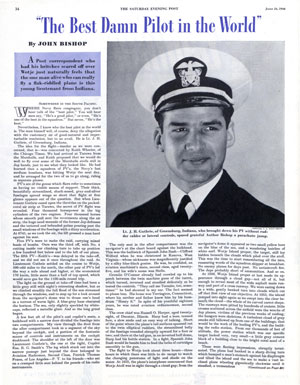
The reason for his concern was explained in the Post article “The Best Damn Pilot in the World” by John Bishop. The writer had accompanied with the crew of a Navy PV-1 Ventura bomber on what was supposed to be a routine, presumably low-risk bombing run over the Wotje Atoll.
Military censors wouldn’t allow Bishop to identify the date of that flight. But we know when it occurred because O’Connor kept a logbook, which is now in the care of his son Bob. The February 28 entry notes that a war correspondent was riding with the crew of the Navy PV-1 Ventura bomber. It also includes this laconic entry: “Took ground fire and the controls were shot away.”
Like so much of what veterans have expressed about their war experiences, this note is remarkable for what it doesn’t say.

Shortly after the plane was pulling away from the target — a Japanese air base in the Marshall Islands — John Bishop heard “three metallic clashes … above the roar of the engines and the high-pitched note of the wind.” He assumed the clashes were “probably the sound of the bomb-release mechanism.” Then the navigator shouted to Bishop over the noise of the engines, “Take a look at that!” and pointed out the window to a large hole in the tailplane. What Bishop had heard had been the explosions of three 20 mm shells from the Japanese.
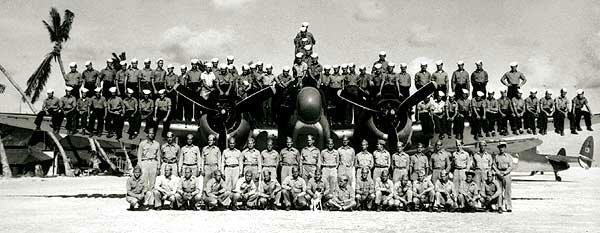
Bishop made his way forward to the cockpit. There, “Lieutenant [J.H.] Guthrie grinned wryly over his shoulder and kicked at the rudder pedals. They bounced back and forth with a sickening abandon. ‘The rudder cables are shot away!’ he shouted cheerfully. ‘And the trim-tab cables too! I have no lateral controls!’”
There was little chance of getting safely back to base now. Bishop, young O’Connor, and the rest of the crew braced themselves for the possibility of having to parachute into the ocean. But Guthrie performed a remarkable feat of piloting, flying back to base and safely landing the shot-up bomber.
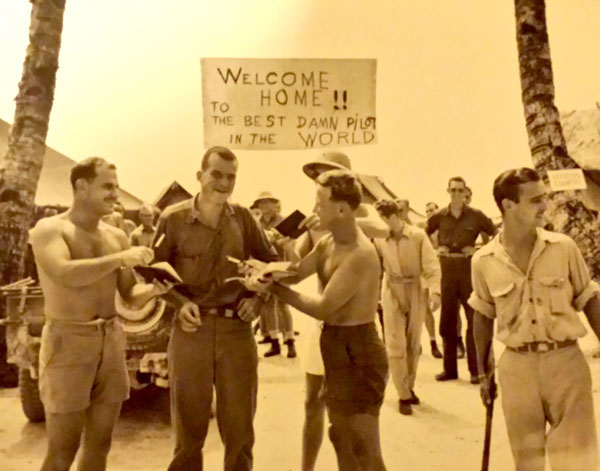
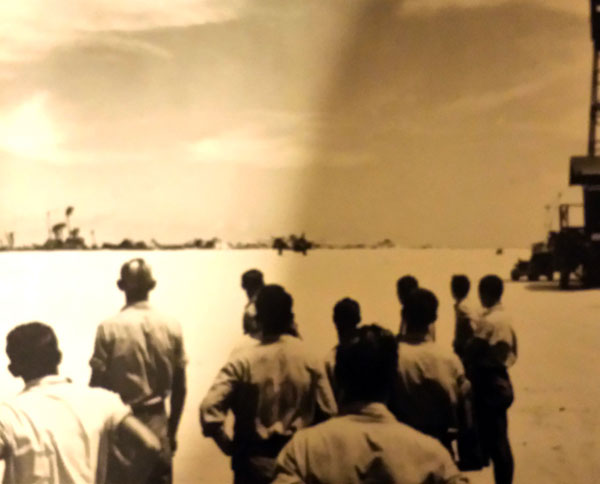
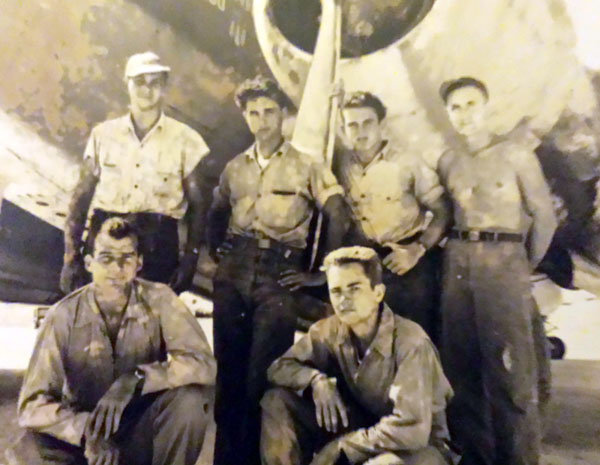
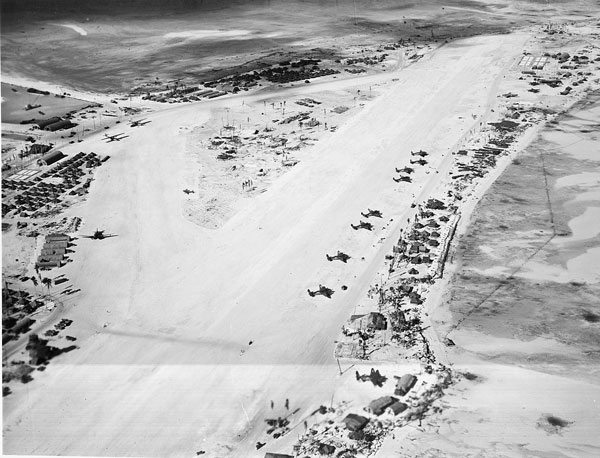
Bob O’Connor knew his father’s flight was the subject of a Post article, but he was unable to find a copy. When he contacted the Post to track down the piece, I had the opportunity to hear how his young father’s life played out after he walked away from that flight.
Henry left the service, returned home, got married and, for a few years, worked as a plumber and house painter. But he was called back to duty when the Korean War began. After this war, he stayed with the Navy, which recognized his leadership abilities. He rose in the ranks, achieving recognition he might never have enjoyed in civilian life. By 1956, he had earned an officer’s commission. By the time he retired in 1974, he had been appointed commanding officer of a new NATO base in Scotland.
Henry O’Connor appears to have earned something even more valuable than military honors. Five years after his death, his children and grandchildren still remember him with admiration and respect. His three boys and two girls are grateful to him for the sense of personal responsibility he drilled into them. But they also benefitted from Henry’s warmth and affability. “Dad was very outgoing, gregarious, and friendly,” says son Bob. “I never heard him say anything bad about anybody. He never met anybody who wasn’t a friend.”
Like many sons of World War II vets, Bob is impressed with the dedication and courage his father showed in his service to the country. His father represented a remarkable generation that Bob feels was shaped by the experience of the Depression. “He certainly didn’t grow up with any sense of entitlement,” he says. “As a generation, they developed a strong, get-it-done work ethic. If they didn’t, they weren’t going to survive.”
He readily admits, “I think that generation saved the world,” adding, “I think that American heroism still exists today. I think we could do it again today.” He saw it in the days following 9/11, in the way Americans came together, at least for a short time. “There are still a lot of proud, young Americans ready to serve their country.”
If young people are still willing to serve, it’s because men like Henry O’Connor made America a country worth serving. And because they set an example of service that will continue to inspire new generations.
The years of service that military men and women have rendered our country is too great to be recognized with just one day out of the year. And the Post would like to launch a continuing tribute on its website, featuring articles, both archival and current, about our veterans. But we’d also like to hear your tributes to U.S. veterans.
We are particularly interested in hearing about servicemen and women who appeared in wartime issues of the Post, whether World War I, II, Korea, or Vietnam. If you, a friend, or family member were mentioned in The Saturday Evening Post, please let us know. Send your emails to [email protected], with Attn: Veterans in the subject line. Please include your contact information: Name, Address, Phone Number, Address, and Social Media URLs (Twitter, Facebook, etc.).